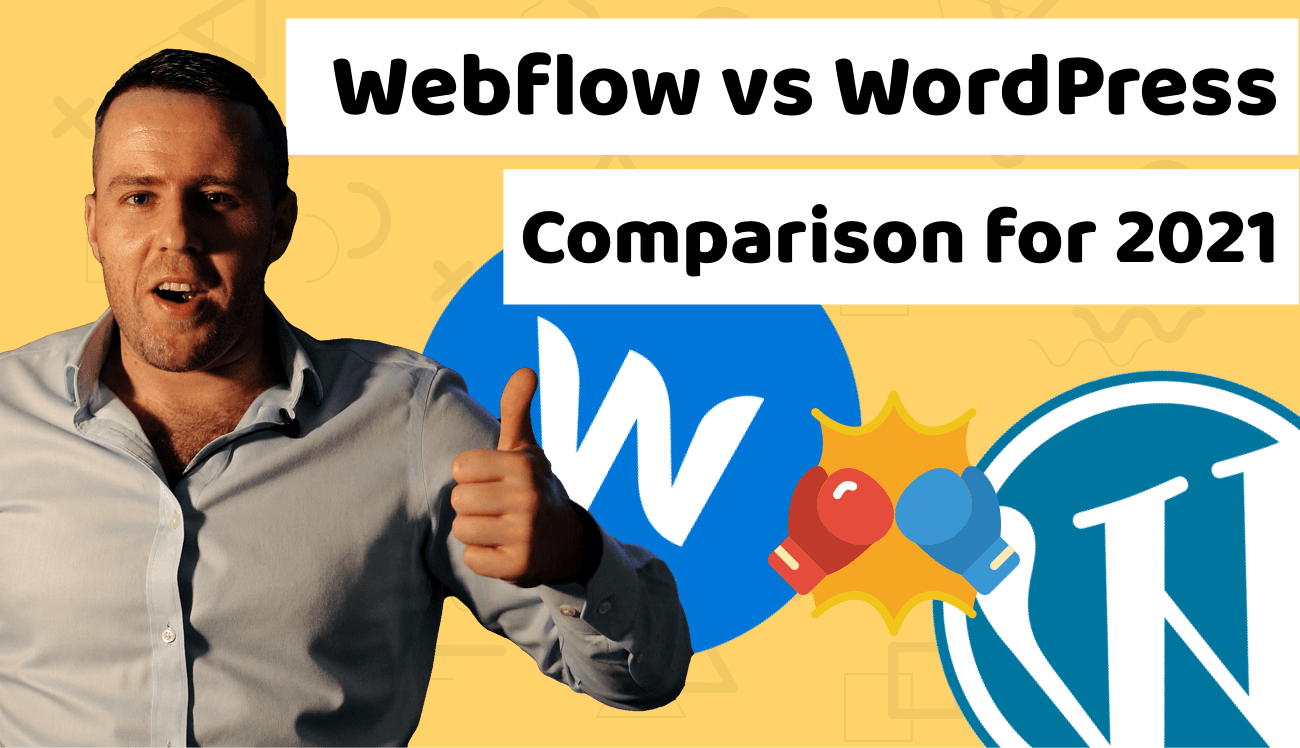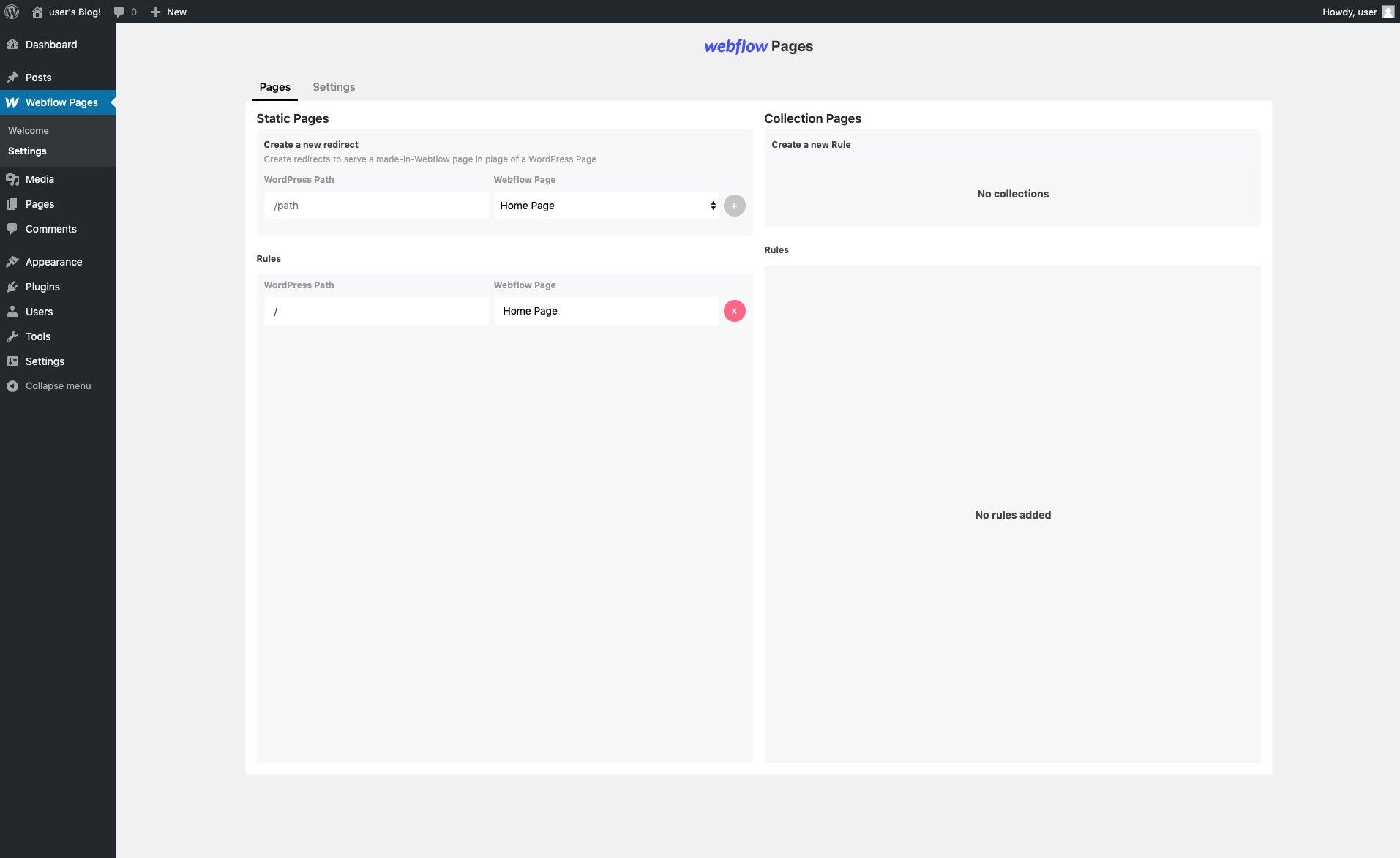Build
Webflow is similar to WordPress in the find a template drag and drop motif of website building but with one key difference. The built-in navigator helps you edit your site accurately and shows you the result in real-time. This means that if you’ve had a little practice, you can edit to your heart’s content and know what you’re getting. If we search “WordPress vs Webflow” on Google, almost every ranked article belongs to the WordPress site. Core WordPress is automatically optimized for SEO. Our recommendation is to use an easy-to-use SEO tool to make your site more optimized for SEO and ensure top-ranking on search engines.
Build production-ready experiences without coding.
“Webflow helped our brand team create a platform that enables all Zendesk employees to accurately and consistently represent the company in an easy, efficient and scalable way.”
The Designer
Bring your design vision to life in clean, semantic HTML5, CSS, and JavaScript — with the Webflow Designer.
CMS and Ecommerce
Build completely custom databases for dynamic content types, including online stores.
Interactions
Easily create immersive interactions and animations.
Launch
Go live on a fast, reliable, and hassle-free hosting network that scales with your business — with a click.
“When we launched the Amstel Live festival page, we were seeing 10,000 requests per second. Webflow Hosting handled it without a hitch.”
Powered by Amazon Web Services
Built to scale — on the same network as Netflix, Pinterest, Airbnb, Slack, and Adobe.
99.9% uptime
So you don’t have to worry about your site going down.
Zero maintenance
No updates to run, packages to install, or headaches to deal with.
Grow
Create, launch, and iterate on new marketing campaigns without distracting your product team.
“Webflow's given our brand design team a new level of autonomy that allows us to be more experimental, creative, and ambitious when taking on new projects.”
Built-in SEO tools
Metadata controls, automatic XML sitemaps, easy 301 redirects, and canonical tags.
Flexible integrations
Connect your marketing tools with built-in integrations and the flexibility of custom code.
Easy content updates
Easily create and update pages — right on the page, with the Webflow Editor.
Here we will take a close look at Webflow vs. WordPress, two of the biggest and most popular site builders on the market. They both have different pros and cons that will help you decide whether Webflow or WordPress will best suit your website needs. Making the right decision will save you a lot of problems in the future if you decide that you want to switch your CMS.

WebFlow
Webflow is a Content Management System (CMS) based within the cloud and, like most other website builders, it allows users to build websites without having to write lines of code. But unlike other CMS-s including WordPress, the strength of Webflow really comes down to the limitless customization options it has.
Due to the higher degree of customization Webflow is a popular choice for web designers. They have more experience working with websites and get excited by the variety of choices made available, compared to beginners who tend to feel a bit overwhelmed in trying to make everything perfect.
Webflow Pros
The main pros of Webflow are:
- Drag and drop page builder functionality
- Intuitive editor
- Work directly with CMS data
- eCommerce site
- Responsive page designs
- Work with reusable CSS classes
- Work with Flexbox
- Define global colour swatches
- Publish straight to the web
- SSL and ISO 27018
- The complete platform which integrates marketing tools and data collecting.
- Export code for download
- Code editor, add your own code if required
- Create scroll based animations
- Zapier Integrations
The Benefits of Using Webflow Over WordPress
The main benefits of Webflow compared to WordPress are:
- Webflow gives you the freedom to create completely customized websites without the need for any coding
- The drag and drop page builder lets you build and customize your pages in any way you want
- You can easily create animations and interactions with no need to use code
- Websites are SEO friendly
- Make edits to your page directly on the page, so you can see exactly what your page will look like before you hit publish
- Invite editors and collaborators to add and review content on your website
- Powerful hosting with minimal downtime for your visitors
- SSL certificate included
Webflow Cons
When it comes to the cons of Webflow, there is not much to be concerned about. The main disadvantages of Webflow compared to WordPress are:
- There is a bit of a learning curve when it comes to using Webflow, especially if you have never done any web development before. That said, they do have a growing library of video tutorials.
- Unlike open source software like WordPress and Woocommerce, Webflow can be quite a bit more expensive.
Webflow Vs Coding
Webflow eCommerce
Unlike WordPress, Webflow offers a wide range of features optimized for eCommerce. With Webflow you will also appreciate a set of marketing tools for the creation of the audience, store promotion, and business development.
Webflow eCommerce has included the basic workflows of modern sellers, such as shipping, taxes, order processing, purchases on Instagram, integration with Zapier, and more. With Webflow eCommerce, you can customize the checkout process, improve the shopping cart experience, and integrate the store into your blog (or vice versa).
With Webflow you will be happy with complete control of the layout, customizable interactions and animations, freedom of payment methods, etc.
Webflow Pricing
There are three pricing models available with Webflow that you can choose from:
Basic
- This model is great for a person that doesn’t need a CMS and just wants a simple website. It costs $12 a month.
CMS
- For $16 a month, this package is great for blogs or websites with lots of content. This price package will support 100,000 monthly visitors, 1000 form submissions and 2000 cms items
Business
- This package costs $36 a month and is best suited for high traffic websites and blogs.
WordPress
WordPress is without a doubt the most popular way to build a website, and it currently powers an astonishing 34% of the internet. Unlike Webflow, WordPress is an open source software which means it’s completely free for anyone to use, you just need to pay for your hosting. You can use WordPress to build blogs, websites, build an online store, display your portfolio, and much more.
WordPress Pros
The main pros of using WordPress are:
Webflow To Wordpress
- Customizable Designs
- SEO friendly (search engines)
- High Performance
- Mobile apps for managing your site on the go
- High security
- Powerful media management
- Easy and accessible
- Over 54,000 WordPress plugin options, allowing you to customize your website
The Benefits of Using WordPress Over Webflow
The main benefits of WordPress compared to Webflow are:
- WordPress is free to use, you just need to pay for hosting, making it a very affordable option for anyone just starting out.
- WordPress is completely customizable, giving you full control over your site and all of your data.
- There are thousands of extensions and plugins to choose from, so the possibilities are endless when it comes to building your website.
- WordPress is very easy for anyone to use with no need for coding if you don’t want to, meaning that even a complete beginner can have a great looking website up and running in a matter of hours.
- Due to WordPress’s popularity, there are already thousands of integrations available for WordPress, so no matter which tools you are using to run your business, chances are high that they will work seamlessly with WordPress.
- WordPress lets you create SEO optimized websites (many third-party plugins with optimal SEO settings) and it’s mobile-friendly, so it’s a great option for anyone who wants their website to rank well in Google
WordPress Cons
The main disadvantages of using WordPress compared to Webflow are:
Webflow Wordpress
- While WordPress is easy for anyone to use with templates and themes, if you want a completely customized design you will need to code it yourself or hire a developer.
Webflow Wordpress Integration
- Since your WordPress website is owned and managed by you, you are responsible for all updates and maintenance to your website, unless you take advantage of managed WordPress hosting.
- WordPress is also an outdated platform that is continuously getting less and less updates, so it may not be the best long-term solution.
WordPress eCommerce
eCommerce on the basis of a WordPress site is a powerful enterprise with many advantages. Install the necessary plugins, connect the necessary payment options, add products. In addition to thousands of WordPress themes, there is a massive library of plugins designed to simplify and automate the entire sales and purchase process.
WooCommerce is the most popular WordPress eCommerce plugin. It features a large number of extensions, which are ideal if you want to expand the functions offered by your online store or eCommerce site. Other plugins will allow you to create a powerful and one-of-a-kind online store.
WordPress Pricing
The actual service of WordPress is free. This is where some people can get confused, you will still need to pay to get your site live. The minimum is to purchase a hosting package, however certain domains, themes, plugins, and services will have to be purchased as well if they are needed.
For more information on WordPress Pricing, check out this link: https://wordpress.com/pricing/
So, Webflow or WordPress: Which is Better?
WordPress vs. WebFlow all comes down to your specific needs. For people with more experience in web design who want a completely customizable site, WebFlow is a better choice, so long as you can afford the higher fees. On the other hand, there is an obvious reason why WordPress is the most popular site builder. It offers great functionality at a reasonable price.

Take the time to make a decision, but consult with a digital marketing agency to see all of your options and what will truly pay off in the end for you and your business.
